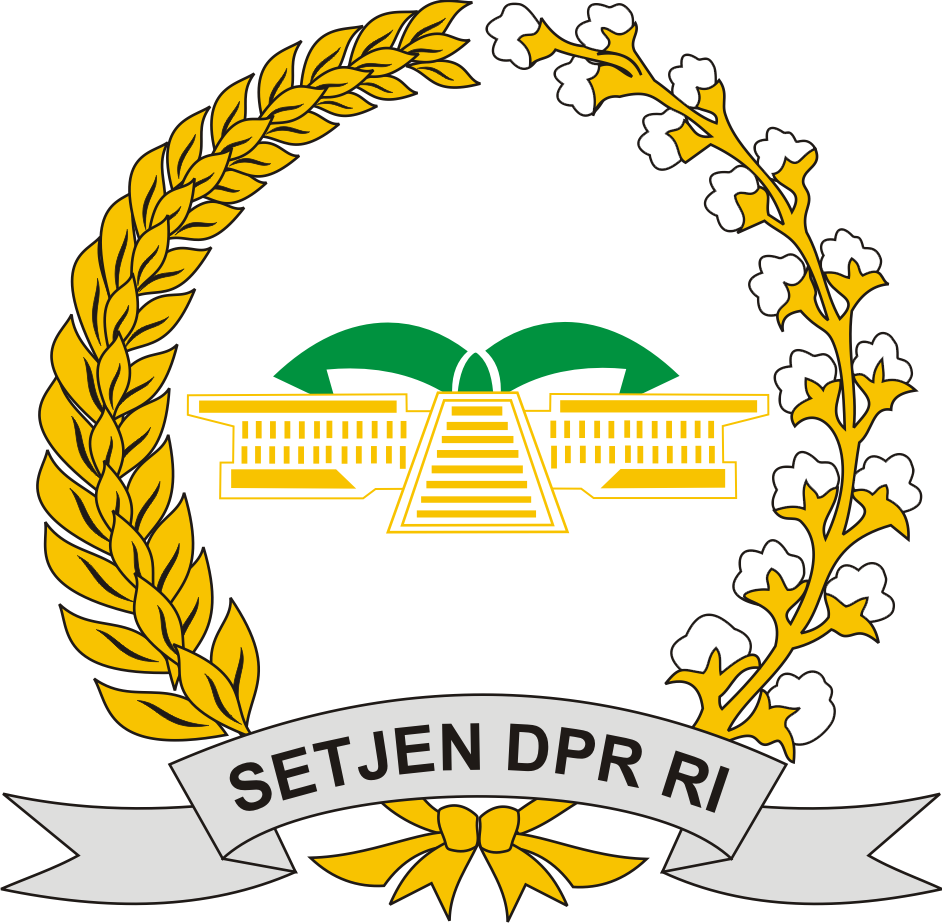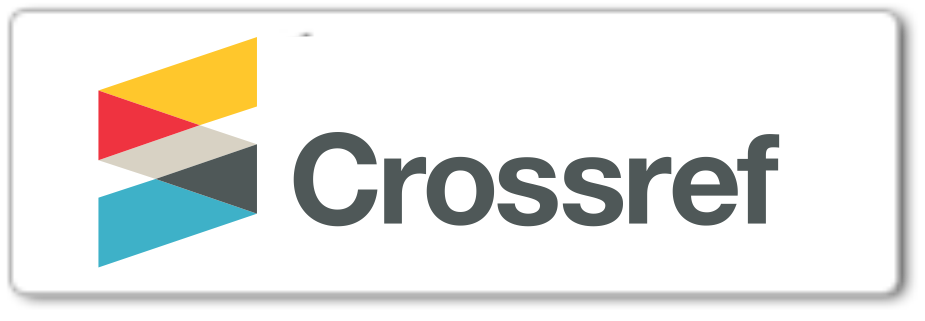The Legislative Role in The Budgeting Process in Indonesia (Peran Badan Legislatif Dalam Proses Penganggaran Negara Di Indonesia)
Abstract
In the budgeting process, generally accepted the executive has a role in drafting the state budget and then presenting it to the legislature. The legislative bodies have the right to discuss, debate, and even in some cases make amend, then give approval or rejection of the executive's state budget proposal. The right of the legislative bodies in practice will different, there are three forms: budget making, capacity to amend or reject the executive’s budget proposal and capacity to formulate a budget of its own; budget influencing, capacity to amend or reject the executive's budget proposal, but lacks the capacity to formulate and substitute budget of its own; budget approving, lacks the capacity to amend or reject the executive's budget proposal or to formulate a budget of its own. This article discusses the role of Indonesian legislative bodies namely the House of Representatives (DPR) and the Regional Representative Council (DPD) in the budgeting process. DPR has a strong role in discussing, amend and accepting or rejecting but weak in the capacity to arrange its own budget so-called budget influence, compared DPD which only gives a consideration so-called budget approving. This article suggests a strong and balanced repositioning of the DPR and DPD roles, thereby creating double checks, budget revisions, delays in constitutional important, public debate and resulting in a favorable budget for the people. In addition, it is necessary to strengthen the capacity and supporting resources for the DPR and DPD in order to be equivalent to the executive in budget discussions so as to become the legislative budget making.
Abstrak
Saat ini, hampir di seluruh sistem ketatanegaraan di berbagai negara, secara umum disepakati bahwa lembaga eksekutif memiliki peran fundamental dalam menyusun draf anggaran negara untuk kemudian dipresentasikan kepada lembaga legislatif. Lembaga legislatif kemudian memiliki hak untuk membahas, memperdebatkan, dan dalam beberapa kasus melakukan perubahan, untuk kemudian memberikan persetujuan atau penolakan terhadap proposal anggaran dari lembaga eksekutif. Hak lembaga legislatif tersebut, dalam praktiknya akan berbeda-beda. Secara umum terdapat tiga bentuk hak lembaga legislatif di antaranya: budget making, legislatif memiliki kapasitas untuk menerima atau menolak proposal anggaran dari eksekutif serta memiliki kemampuan memformulasikan anggaran secara sendiri; budget influencing, legislatif memiliki kapasitas menerima atau menolak proposal anggaran dari eksekutif namun lemah dalam memformulasikan anggaran secara sendiri; dan budget approving, legislatif tidak memiliki kapasitas menerima atau menolak proposal anggaran dari eksekutif termasuk memformulasikan anggaran secara sendiri. Artikel ini membahas peran lembaga legislatif Indonesia yaitu DPR dan DPD dalam proses penganggaran. DPR memiliki peran kuat yakni membahas, mengubah, dan menerima atau menolak namun lemah dalam kapasitas menyusun anggarannya sendiri sehingga disebut budget influencing, dibandingkan DPD yang hanya memberikan pertimbangan sehingga disebut budget approving. Artikel ini menyarankan agar ada reposisi peran DPR dan DPD yang lebih kuat dan berimbang, sehingga akan dapat menciptakan pengawasan ganda, revisi penganggaran yang diperlukan, penundaan anggaran yang memiliki kepentingan konstitusi, debat publik, dan menghasilkan anggaran yang berpihak pada rakyat. Selain itu, diperlukan penguatan kapasitas dan sumber daya pendukung bagi DPR dan DPD agar dapat setara dengan eksekutif dalam pembahasan anggaran sehingga mampu menjadi lembaga legislatif pembentuk anggaran (budget making).
Keywords
Full Text:
PDFReferences
Journal Articles
Anderson, Barry. “The Changing Role of Parliament in the Budget Process”. OECD Journal on Budgeting. Vol. 2009 No. 1. 2009. Pp. 1-11.
Blöndal, J.R., Dirk-Jan Kraan, and Michael Ruffner. Budgeting In the United States. OECD Journal on Budgeting. Vol. 3 No. 2. 2003.
Blondal, J.R., Hawkesworth, I., & Choi, H.D. “Budgeting in Indonesia”. OECD Journal on Budgeting. Vol. 9. No. 2, 2009.
Cheibub, J., Przeworzki, A., & Saigh, S.M. “Governments Coalitions and Legislative Success Under Presidensialism and Parliamentarism”. British Journal of Political Science. Vol 34, 2004. Pp. 565-587.
Hankla, Charles R. “Fragmented Legislatures and the Budget: Analyzing Presidential Democracies”. Economics & Politics Journal. Vol. 25. No. 2. July 2013. Pp. 200-228.
Isra, Saldi. “Sistem Trikameral di Tengah Supremasi Dewan Perwakilan Rakyat”. Jurnal Konstitusi. Vol. 1 No. 1, 2004.
Julpikar. “Kedudukan Dewan Perwakilan Rakyat Dalam Penetapan dan Pengawasan APBN Di Indonesia”. Jurnal De Lega Lata. Vol. I Nomor 1. 2016.
Kaleran, Anak Agung Ngurah Whisnu Shari Bhuana dan Edward Thomas Lamury Hadjon. “Akibat Hukum Penolakan Penetapan Anggaran Pendapan Belanja Negara Oleh Dewan Perwakilan Rakyat”. Jurnal Kertha Negara. Vol. 03 No. 02. 2015.
Lienert, Ian, and Jung, M.K. “The Legal Framework for Budget Systems, An International Comparison”. OECD Journal on Budgeting. Vol. 4 No. 3, 2004.
Posner, P., & Park, C.K. “Role of the Legislature in the Budget Process: Recent Trends and Innovations”. OECD Journal on Budgeting. Vol. 7. No. 3, 2007.
Santiso, Carlos. Legislatures and Budget Oversight in Latin America: Strengthening Public Finance Accountability in Emerging Economies. OECD Journal on Budgeting. Vol. 4 No. 2. 2004.
Shelton, Cameron A. “Legislative Budget Cycles”. Journal of Public Choice. Springer. Vo. 159. December 2012.
Straussman, Jeffrey D. and Ari Renoni. “Nonpartisan Legislative Budget Offices: A Tentative Step Toward Improving Legislative Oversight”. Governance, An International Journal of Policy, Administration, and Institutions. Vol. 24. No. 1. January 2011. Pp. 167-173.
Susanto, Mei. “Hak Budget DPR Dalam Pengelolaan Keuangan Negara”. Jurnal Rechtsvinding. Vol 5 No. 2, 2016. Pp. 183-195.
Susanto, Mei. “Eksistensi Hak Budget DPR Dalam Sistem Ketatanegaraan Indonesia”. Padjadjaran Jurnal Ilmu Hukum. Vol. 3 No. 1, 2016.
Tellier, Genevieve. “Improving the Relevance of Parliamentary Institutions: An Examination of Legislative Pre-Budget Consultations in British Columbia”. The Journal of Legislative Studies. Vol. 21 No. 2. 2015.
Wehner, Joachim, and Paolo de Renzio. “Citizens, Legislators, and Executive Disclosure: the Political Determinants of Fiscal Transparency“. World Development. Elsevier. Vol. 41. 2013.
Yunus, Yutirsa, dan Reza Faraby. “Reduksi Fungsi Anggaran DPR Dalam Kerangka Checks And Balances, Kajian Putusan Mahkamah Konstitusi Nomor 35/PUU-XI/2013”. Jurnal Yudisial. Vo. 7 No. 2. 2014.
Books
Andi, Ferdian R. Gerakan Anggaran Pro Rakyat Di Parlemen. Jakarta: Change. 2014.
Asshiddiqie, Jimly. Pokok-Pokok Hukum Tata Negara Indonesia Pasca Reformasi. Jakarta: Buana Ilmu Populer. 2008.
Atmadja, Arifin P.S. Mekanisme Pertanggungjawaban Keuangan Negara Suatu Tinjauan Yuridis. Jakarta: Gramedia. 1986.
Bahagijo, Sugeng., Mashudi Noorsalim and Darmawan Triwibowo. “Peran Parlemen Dalam Sistem Penganggaran Di Berbagai Negara, Sebuah Tinjauan Komparasi”. In Waidl, Agus., Yuna F., dan Sakri D. (Ed), Anggaran Pro Kaum Miskin, Sebuah Upaya Menyejahterakan Masyarakat. Jakarta: LP3ES, 2009.
Bradley, A.W., and Ewing K.D. Constitutional and Administrative Law. London: Pearson Longman. 2007.
CETRO, in Argama, R., et al. Berharap pada 560, Catatan Kinerja DPR 2009-2010, Jakarta: PSHK. 2009.
Indrayana, Denny. Negara Antara Ada dan Tiada, Reformasi hukum Ketatanegaraan. Jakarta: Penerbit Kompas. 2008.
Isra, Saldi. Pergeseran Fungsi Legislasi, Menguatnya Model Legislasi Parlementer Dalam Sistem Presidensial Indonesia. Jakarta: Rajawali Pers. 2010.
Katharina, Riris, and Nainggolan, Poltak. P. Menciptakan DPR dan Sistem Pendukung Parlemen Yang Mendukung Anggaran Pro Kaum Miskin. In Waidl, A., Farhan, Y., & Sakri, D. (Ed). Anggaran Pro Kaum Miskin Sebuah Upaya Menyejahterakan Masyarakat. (p. 275-306). Jakarta: LP3ES. 2009.
Mainwaring, Scott. Presidentialism, Multiparty systems, and Democracy: The Difficult Equation, In Lijphart, Arend. Parliamentary versus Presidential Government. Oxford: Oxford University Press. 1992.
Manan, Bagir. DPR, DPD dan MPR dalam UUD 1945 Baru. Yogyakarta: FH UII Press. 2003.
Pahlevi, Indra. Sistem Pemilu Di Indonesia Antara Proporsional dan Mayotarian. Jakarta: P3DI Setjen DPR RI dan Azza Grafika. 2015.
Purnomowati, Reni D. Implementasi Sistem Bikameral Dalam Parlemen Indonesia. Jakarta: Rajawali Pers. 2005.
Sartori, Geovani. Comparative Constitutional Engineering: An Inquiry into Structures, Incentives, and Outcomes. New York: New York University Press. 1997.
Susanto, Mei. Hak Budget Parlemen Di Indonesia. Jakarta: Sinar Grafika. 2013.
Stourm, Rene. The Budget. New York: D. Appleton and Company. 1917.
Strong, C.F. Modern Political Constitution: An Introduction to the Comparative Study of Their History and Existing Form. London: Sidwick & Jackson Limited. 1975.
Thaib, Dahlan. Menuju Parlemen Bikameral: Studi Konstitusional Perubahan UUD 1945. Yogyakarta: FH UII. 2002.
Wehner, Joachim. Legislatures and the Budget Process, The Myth of Fiscal Control. UK: Palgrave Macmillan. 2010.
Research Report
Gustafson, Robert, C., “Legislatures and the Budget Process, An International Survey”. Washington, D.C.: The National Democratic Institute for International Affairs. 2003.
Lienert, Ian. “Who Controls the Budget: The Legislature or the Executive?”. IMF Working Paper. 2005.
PUSKAPOL, U.I. Profil Anggota DPR dan DPD RI 2014-2019. Jakarta: Pusat Kajian Politik Departemen Ilmu Politik FISIP Universitas Indonesia. 2014.
Stapenhurst, R., Sahgal, V., Woodley, W., Pelizzo, R. Scrutinizing Public Expenditures – Assessing the Performance of Public Accounts Committee. Singapore: Joint Publication of WBI Working Papers & SMU Social Sciences & Humanities Working Paper Series. 2005.
Wehner, Joachim. Back from the Sidelines? Redefining the Contribution of Legislatures to the Budget Cycle. Washington, D.C.: World Bank Institute. 2004.
Articles
Muhtadi, Burhanuddin. “Ironi Politik Jokowi”. Gatra. February 5th, 2015.
Court Decision
Constitutional Court Decision Number 35/PUU-XI/2013, about Judicial Review Law Number 27 of 2009 concerning The People’s Consultative Assembly, The House of Representatives, The Regional Representative Council and The Local House of Representatives to the 1945 Constitution of Indonesia, May 22, 2014.

This work is licensed under a Creative Commons Attribution-NonCommercial-ShareAlike 4.0 International License.
Refbacks
- There are currently no refbacks.






 mei susanto
mei susanto








